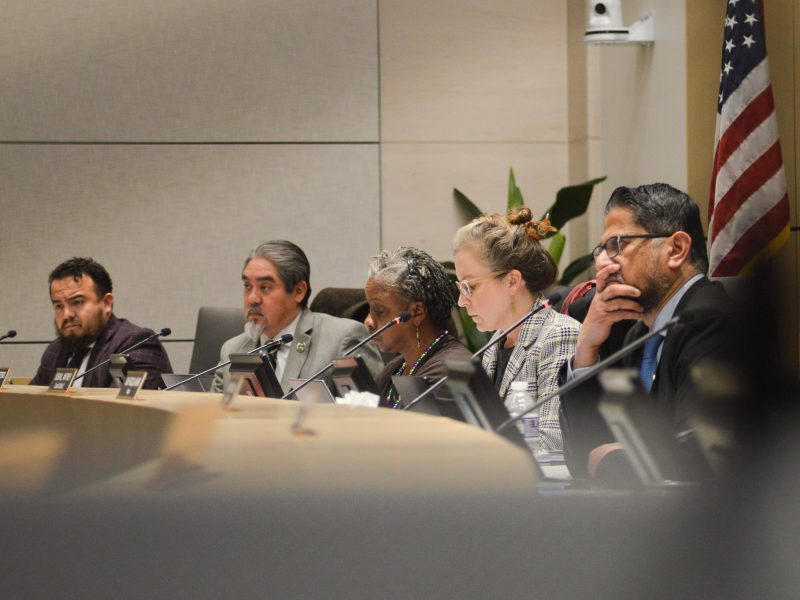After decades of efforts to expand and better serve the health care needs of Prince George’s County residents, officials announced earlier this month the University of Maryland Medical System’s partnership with a Prince George’s County hospital system, which created University of Maryland Capital Region Health.
The partnership took effect Sept. 1. The hospitals now exist under the ownership of the University of Maryland Medical System, which is the state’s academic health system. This new affiliation will affect several hospitals throughout the county, including those in Laurel and Bowie.
For example, Largo will house the University of Maryland Capital Region Medical Center, which will replace Prince George’s Hospital Center in Cheverly. The new hospital is slated to open in 2021.
“This is clearly a new era of health care services within Prince George’s County and Southern Maryland region,” said Neil Moore, president and CEO of University of Maryland Capital Region Health, a nonprofit health care system that has served the county since 1982. The system was formerly called Dimensions Healthcare System.
[Read more: Research show more mothers opting for out-of-hospital births]
In 2010, Maryland state and county legislatures approached University of Maryland Medical System leaders to address “inadequate health care delivery,” said John Ashworth, senior vice president of the University of Maryland Medical System.
Dimensions Healthcare System was unable to meet the health care needs of county residents because many of its patients were uninsured, creating financial barriers for both the system and its employees, Ashworth said. He added that many facilities’ appearances were “crumbling.” These difficulties prevented the system from offering needed primary and specialty care for chronic conditions prevalent throughout the county, such as cancer, diabetes and hypertension, he added.
“Dimensions did away with a lot of OBGYN services and issues related to women’s health, and they wanted to close inpatient care services,” said Laurel Mayor Craig Moe.
Moe co-chaired the Laurel Strategic Planning Work Group alongside Dr. Stephen Bartlett, surgeon-in-chief at University of Maryland Medical System, to “keep the hospital doors open and the community involved in the process,” he said.
The group worked for nearly 10 months, operating under seven subcommittees and discussing topics rangingfrom needs for emergency medical services to saving jobs and transferring doctors and nurses to other positions, Moe said.
With the new partnership, Moe said the health care system is meeting the needs of Laurel’s citizens, adding that “time will show a rejuvenation” in the greater county community.
“It’s not just Laurel Regional they’re talking about,” Moe said. “They create an umbrella.”
Sixty percent of Prince George’s County residents seek inpatient health care services outside of the county in places such as Washington, D.C., and Montgomery and Howard counties, said Moore, citing a 2012 study from the University of Maryland’s public health school.
“The exodus and numbers were a huge statement in itself about the quality of services and the like,” Ashworth said.
[Read more: Greenbelt could lower the voting age to 16 for local elections]
The University of Maryland Medical System and University of Maryland Capital Region Health hope residents seek health care within the county, Moore said. To attract residents, the partners have developed a new marketing team and advanced their resources.
“By being a part of University of Maryland Medical System, we now have the ability to buy in larger scale part of the medical system and realize the scale from that,” Moore said. “What that means is a dollar goes a longer way today than it did before, thereby reducing the cost of care within the hospital.”
With President Trump’s and congressional Republicans’ vow to repeal and replace the Affordable Care Act back in the spotlight, the services University of Maryland Medical System and University of Maryland Capital Region Health provide are in jeopardy.
“A lot of the things that have been going on at the federal level don’t necessarily translate into the state of Maryland and its healthcare delivery system functions,” Ashworth said. “There is one major exception to that though: Medicaid.”
The most recent version of the Graham-Cassidy bill, named after Sens. Lindsey Graham (R-South Carolina) and Bill Cassidy (R-Louisiana), ends Medicaid expansion and subsidies and allows individual states to decide how to spend the money.
“Any change to the Affordable Care Act that would either take away or interrupt anyone going into a covered line situation, like Medicaid, would certainly affect us negatively,” Moore said.
If the Affordable Care Act, also known as Obamacare, is repealed and replaced and cuts Medicaid funds, Ashworth said the system has “a set of priorities that are focused on value-based health care, which means we always ask what we can do to improve quality in a cost efficient way, and no matter what happens at the federal level, that’s going to be the mantra.”
University of Maryland Capital Region Health will bring in world-class, discovery-based medicine due to the research opportunities it has available with a partner like University of Maryland Medical System, Moore said.
“This is something we wanted and now that it’s here, we’re very happy and we’re going to work very, very hard collectively with the University of Maryland Medical System to ensure that we meet the needs of residents of Prince George’s County,” Moore said. “That includes those who live throughout College Park — both residents and students.”



